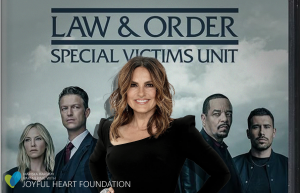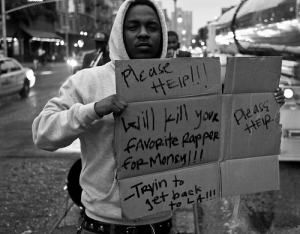As a continuation from my Feb. 9 article, this week I will continue to relay my experiences at the Santa Barbara International Film Festival. With the Oscars just around the corner, my time at the producers’ and writers’ panels and the following luncheon with such masterminds proves all the more relevant.
Producers Panel – Saturday afternoon
Bringing together some of today’s most established producers, the panel featured Peter Spears (“Call Me By Your Name”), Lisa Bruce (“Darkest Hour”), Emma Thomas (“Dunkirk”), Sean McKittrick (“Get Out”), Evelyn O’Neill (“Lady Bird”), Daniel Lupi (“Phantom Thread”), J. Miles Dale (“The Shape of Water”) and Graham Broadbent (“Three Billboards Outside Ebbing Missouri”).
The moderator began by jokingly asking the panelists if they were crazy. However, they threw it right back, saying they believe it takes more grit than insanity to have their job, and “wrangling crazy” is a more accurate description.
The focus then turned to Spears, who lived both literally and figuratively in a closet when he first arrived to LA. While he may have had a long journey to get to where he is today, his Oscar-nominated film “Call Me By Your Name” involved a 10-year journey since originally optioning the book.
Despite adapting a beloved novel, financiers still wanted to insert higher stakes and change key parts of the novel. His team constantly heard things like, “Can the mother be more evil?” and, “Could somebody get sick and maybe die?”
“It’s crazy, the things you actually think about and consider doing because you are so desperate to make the movie,” Spears said. “You are like, ‘Well, OK, I guess the mother could put the cigarette out on the back palm of his hand or something like that if it would give us another million.’”
In the end, they found a team who believed the stakes of the heart are as high as any, and they tried to remain true to the novel. However, when it was finally time to start shooting in Italy in the summer of 2016, other problems arose.
“It was the wettest, coldest, rainiest summer in 200 years in Europe, “ Spears said. “So everything you see up there is the amazing work of our cinematographer … actors putting ice cubes in their mouths between takes so you don’t see their breath when they’re talking … We waited 10 years to begin shooting, and then we might as well have been in Seattle.”
Lupi also experienced some hiccups in “Phantom Thread,” where for the first time since he started working for director P.T. Anderson 20 years ago, he chose to shoot in London instead of the Valley. He explained how for an American crew, the film becomes their life, but in London, they often times refused to stay late to finish a shoot.
Also, after working with Daniel Day-Lewis on three films, he said he believes this will actually be his final one.
“He puts such commitment into the roles that I’m sure it’s quite draining,” Lupi said. “He’s in that character for like a year, and he doesn’t play couch with it. He comes to work as Reynolds Woodcock and leaves as Reynolds Woodcock, so it’s a lot.”
Just as Lupi had a long-term working relationship with Anderson, Thomas has also been making films with her husband, Christopher Nolan, since they first met at university.
“I never even imagined film producing; I had no idea what that looked like,” Thomas said. “I started producing films for him without really even knowing what I was doing. I was just helping out.”
For their first film, “Following,” which ended up costing $6,000, they planned accordingly. The movie was disjointed because they knew they would have continuity issues being able to only shoot on the weekends. They made it black and white because they knew they wouldn’t have the resources to make it look good in color. Despite humble beginnings, Thomas claims the process isn’t much different nowadays, and her and Nolan approach every film like an independent one.
“The funny thing is, in many ways, the process has not changed that much,” Thomas said. “The films that we make, although on the face of it, are very large in scope and scale, they feel like kind of a cottage industry.”
Together their movies have made $5 billion worldwide, so when they pitch to Warner Bros., it’s more about making them excited and invested in the film in order to market it well.
“’Dunkirk,’ I think, was an extremely risky film for Warner Bros.,” Thomas said. “The approach that Chris took was experimental, to say the least. It’s almost a silent film in many ways; there’s not a great deal of plot or a huge amount of dialogue.”
And as far as risks go, that’s how Jordan Peele felt when pitching “Get Out” to McKittrick at a coffee shop, the man who also produced “Donnie Darko.”
“[Peele said] here’s one that no one will ever make, but I have to get it off my chest,” McKittrick said. “Then, we bought it at the table.”
At the time, Peele never revealed his intentions to direct the film, but McKittrick said he believed he just needed to find the confidence because it was a singular voice, and Peele was the only man for the job. It was a similar story to Greta Gerwig, who transitioned from acting in order to make her directing debut in “Lady Bird.”
Gerwig recruited her manager O’Neill to produce “Lady Bird,” a plan that was germinating for a long time.
“It was pretty evident that the business didn’t understand who she was,” O’Neill said. “Yet everything that is magical about her was right there: her charisma, her gifts as an actress, her voice and her joy in life and movies.”
What started as a 350-page screenplay, ended up at 94 minutes after a ruthless cutting process. This is why all the characters feel fully realized, because even actors in smaller roles had a developed storyline in the original script.
“Every detail of the film is purposeful and actually fraught with symbolic meaning and resonance,” O’Neill said. “So you experience [the movie] as this fun ride, but it is so carefully layered.”
“The Shape of Water” was another film with a truly independent vision. It was shot in between seasons of a TV series, and it took 58 days on a budget of $20 million.
“They knew this was a real passion project … they drank the Kool-Aid, and they saw the beauty of the project,” Dale said. “Sometimes people do it for the money, and sometimes they do it for love, and this was the latter.”
However, according to Dale, when you do it for less, there’s more creative freedom because there aren’t quite as many people breathing down your neck.
The conversation then turned to women in the industry, people of color and the ultimate role of a producer.
“The job is to facilitate the very best film to get the very best film made [and] subsuming your ego to the point where the very best happens,” Broadbent said. “It’s not about us individually, it’s about the film as a whole.”




